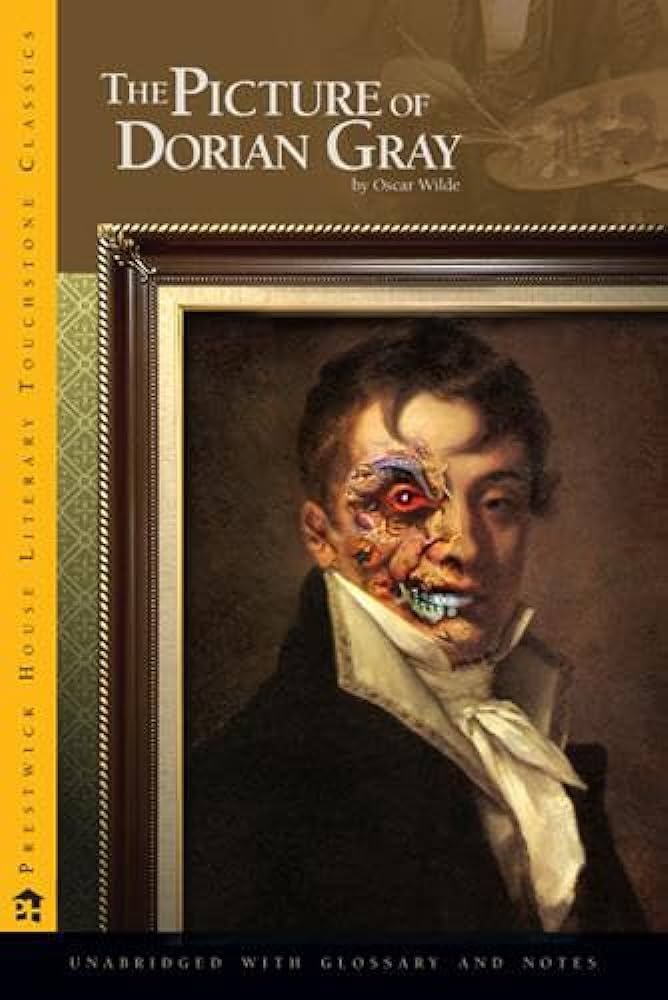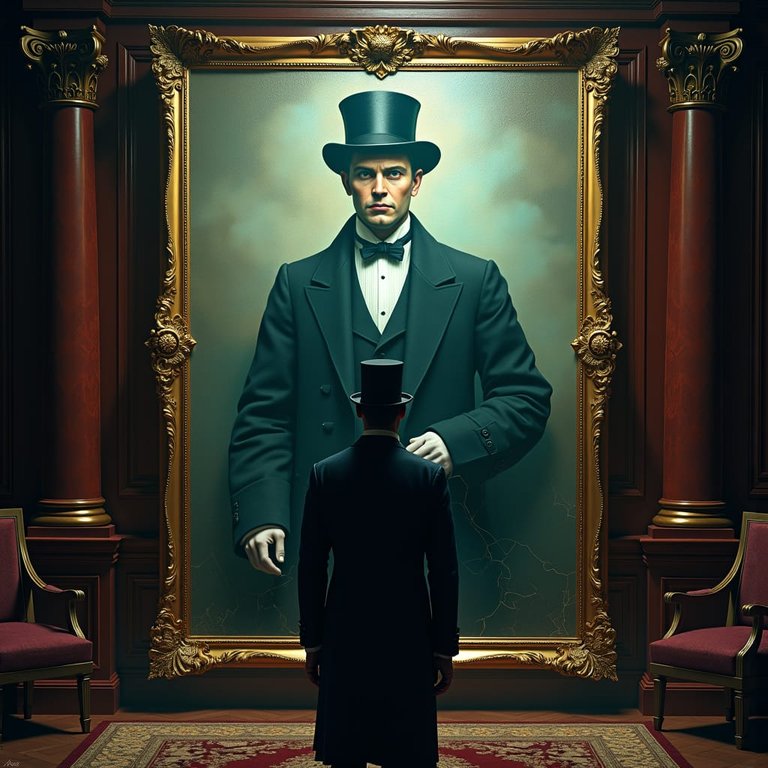The Picture of Dorian Gray by Oscar Wilde
 Source: (https://www.amazon.in/Picture-Dorian-Gray-Oscar-Wilde/dp/1580493939)
Source: (https://www.amazon.in/Picture-Dorian-Gray-Oscar-Wilde/dp/1580493939)
I recently finished the novel The Picture of Dorian Gray. I must say that I was pleasantly surprised to discover that this dark work of art came from the mind of Oscar Wilde. I'm typically used to reading his "happy-go-lucky" Irish short stories! 😄 Nevertheless, it proved to be an interesting book.
The synopsis of The Picture of Dorian Gray is a common one: a young man, so obsessed with youth and vanity, that it ultimately becomes his demise. We witness this man become corrupted by his traits as he goes on to commit terrible acts, and eventually loses any sense of humanity that he may have had left...
One of the first things that I noticed were the many uses of yellow imagery throughout the novel. Yellow is an interesting colour, in the sense that we hardly associate it with its negative connotations. When we think of yellow, the first thing that we automatically think of is the sun, which tends to symbolize life and happiness. We associate yellow with its warmth and vitality.
However, there are two sides to every coin. A "yellow belly" is a term that is used for a coward. Jaundice and stomach bile have connected the colour to illness and irritation. Because it is so eye-catching, we often use yellow as a warning, a sign of impending danger, to proceed with caution...
There are many who are quick to point out the use of white and red imagery throughout the novel, to convey the contrast between innocence and madness, and of course yellow is discussed because of The Yellow Book that Lord Henry gives to Dorian. But I noticed yellow symbolism on nearly every page!
"The moon hung low in the sky like a yellow skull." Lord Henry describes his aging appearance as "wrinkled, worn, and yellow" -- don't people typically describe their aging as "grey"? Dorian accuses The Yellow Book of being a "poisonous" influence. Even Dorian's hair is described as "crisp gold hair." I believe yellow did a wonderful job of portraying Dorian's descent into madness.
As for the ending, I am meant to interpret it as Dorian's unintentional suicide. From the very first chapter, it is explained that Dorian's true nature -- his soul -- would live on through the portrait:
"How sad it is! I shall grow old, and horrible, and dreadful. But this picture will remain always young. ... If it were only the other way! If it were I who was to be always young, and the picture that was to grow old! ... I would give my soul for that!"
This is the explanation for why the portrait physically alters and ages, but Dorian does not. This is why when Dorian attempts to destroy the painting, he inadvertantly kills himself and the portrait returns to normal.
It is important to note that Basil the painter's soul was also exerted into the portrait:
"The reason I will not exhibit this picture is that I am afraid that I have shown in it the secret of my own soul."
And perhaps both characters are to be blamed for their unfortunate demise: Dorian for succumbing to Lord Henry's terrible influence, and Basil for idolizing and worshipping a man for his youth...
 (Image created using an AI art generator on Night Cafe)
(Image created using an AI art generator on Night Cafe)
If it were up to me, there is only one thing I would change about the novel, and that is James Vane's demise. There was much foreshadowing from the moment that James was first introduced to us:
"I wish I had (met Dorian), for as sure as there is a God in heaven, if he ever does you any wrong, I shall kill him.”
Only for his role to be greatly diminished -- he finds Dorian, is tricked into believing he has the wrong man, realizes Dorian is the right man, only for James to die by hunting accident while stalking Dorian. This did not do James justice, and as the reader, I was thoroughly disappointed as well. James deserved some kind of vindication for the death of his sister. I believe that if the two men had met and brawled, only for Dorian to still murder James, this could have contributed much more to the plot. James dies an unsung hero, the reader's hatred for Dorian intensifies, and Dorian's death gives us all a sense of catharsis.
Aside from that, I loved the ending and the overall message. Dorian was not only obsessed with his youth -- he was obsessed with pleasure. Immediately proposing to his first love, leading a life of luxury, he even tried turning to opiates to cope with his downfall. It really hit home; pleasure can be our downfall too, if we allow it to be. The entire time that I read this book, I was left with an overall feeling of unsatisfaction. It felt like when you spend the entire day excitedly anticipating something, something that you know is going to be great -- a wonderful meal, that first cigarette, visiting the amusement park... Only for the event to finally happen and be unsatisfied. Then you grow irritated because you planned your entire day around it just to be disappointed!